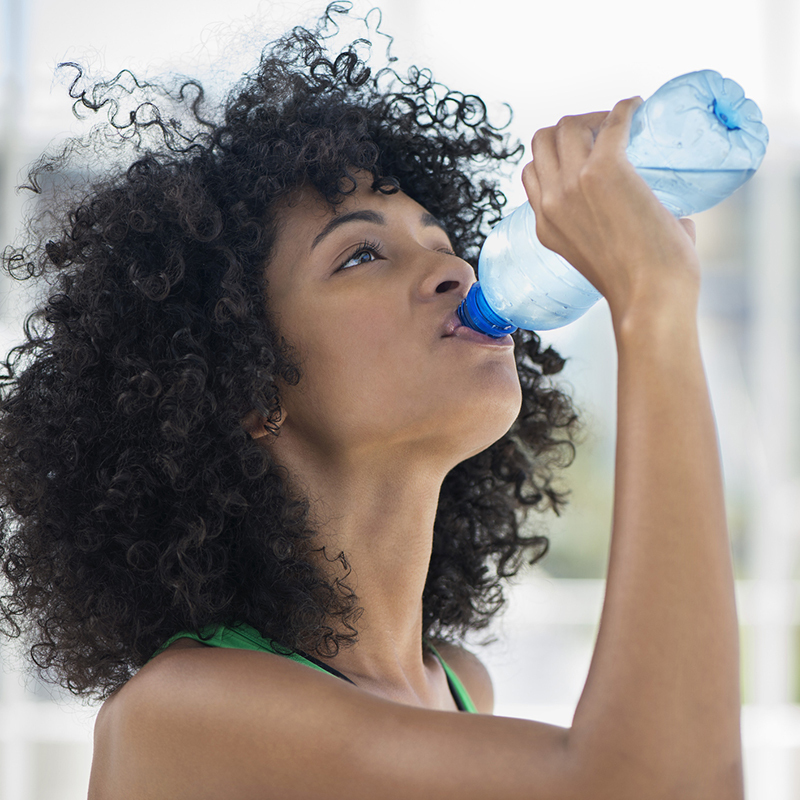How Much Water Should You Drink?
Maintain your summer health by staying hydrated. A Bergen doctor offers his tips.

This week has been a steamy one—and summer is just getting started. While we all enjoy the sunshine, the heat and humidity can pose dangers, particularly for young ones and those with health issues. If you have to head outdoors and leave the comfort of your air-conditioned home, there are many ways to keep cool, including a dip in one of Bergen County’s town pools or a taste of delicious Italian ice.
However you beat the heat, the most important thing to do when you’re spending any time outdoors is to stay hydrated. Getting enough fluids will help the body maintain a normal temperature and will ensure the heart can pump enough blood to the rest of the body, according to the Centers of Disease Control and Prevention. Doing this can reduce risk of heat-related illnesses such as heat stroke, a condition marked by very high body temperatures, a cessation of sweating and collapse.
So just how much water should you be drinking? “On average, an adult should be drinking six to eight 8-ounce glasses of water per day,” Joseph Fernicola, M.D., medical director at Ramsey-based Valley Medical Group tells BERGEN, adding that a higher-than-average body weight or activity level may require more. “You should drink more if you’re outside on a hot summer day, especially if you’re exercising or working,” he says.
Water’s the easiest way to fulfill our daily hydration quota, but drinking pure H20 isn’t the only option. “Many beverages can count toward our daily goal,” Dr. Fernicola says. “Sports drinks and fruit juices that are low in sugar are good ways to stay hydrated, and milk is one of the best ways too, because along with water it contains carbohydrates, which are slower to break down and provide sustained hydration.” Athletes and people who sweat a lot should use sports drinks such as Gatorade or Pedialyte to hydrate and maintain their sodium levels. Don’t, however, depend heavily on these options, as the sugars (even in low-sugar drinks) and calories can add up.
The doctor also notes that caffeinated drinks such as coffee and tea, often shunned by health professionals because they act as diuretics (which help the body get rid of water), also count toward daily hydration goals; however, they shouldn’t be relied on when one is dehydrated.
Tired of carrying your Stanley or Owala water bottle? You can “eat” your fluids too. Consuming fruits and vegetables shouldn’t be a substitute for the six to eight 8-ounce glasses of water or other fluids we all need each day, but the following foods can be helpful sources of additional hydration.
Fruits: Cantaloupe, peaches, strawberries, watermelon, pineapple, oranges, grapefruit
Vegetables: Celery, cucumber, tomatoes, zucchini, lettuce, cabbage, carrots
Be on the lookout for the July issue of BERGEN, which contains more hydration tips and advice from Joseph Fernicola, M.D.

